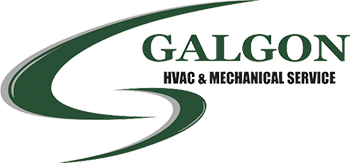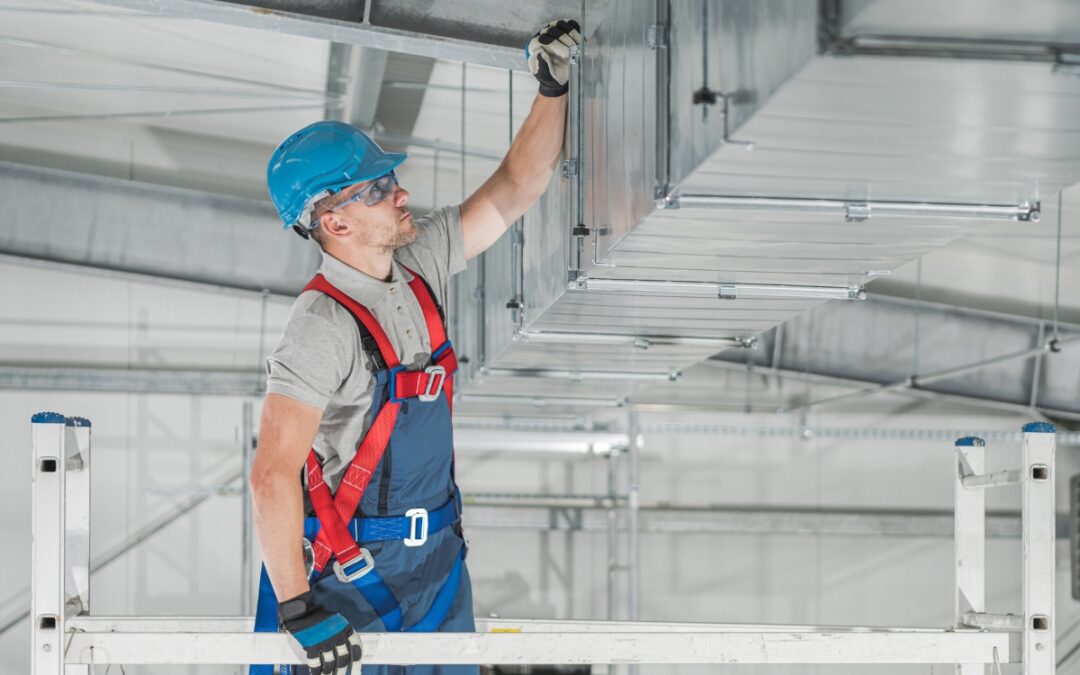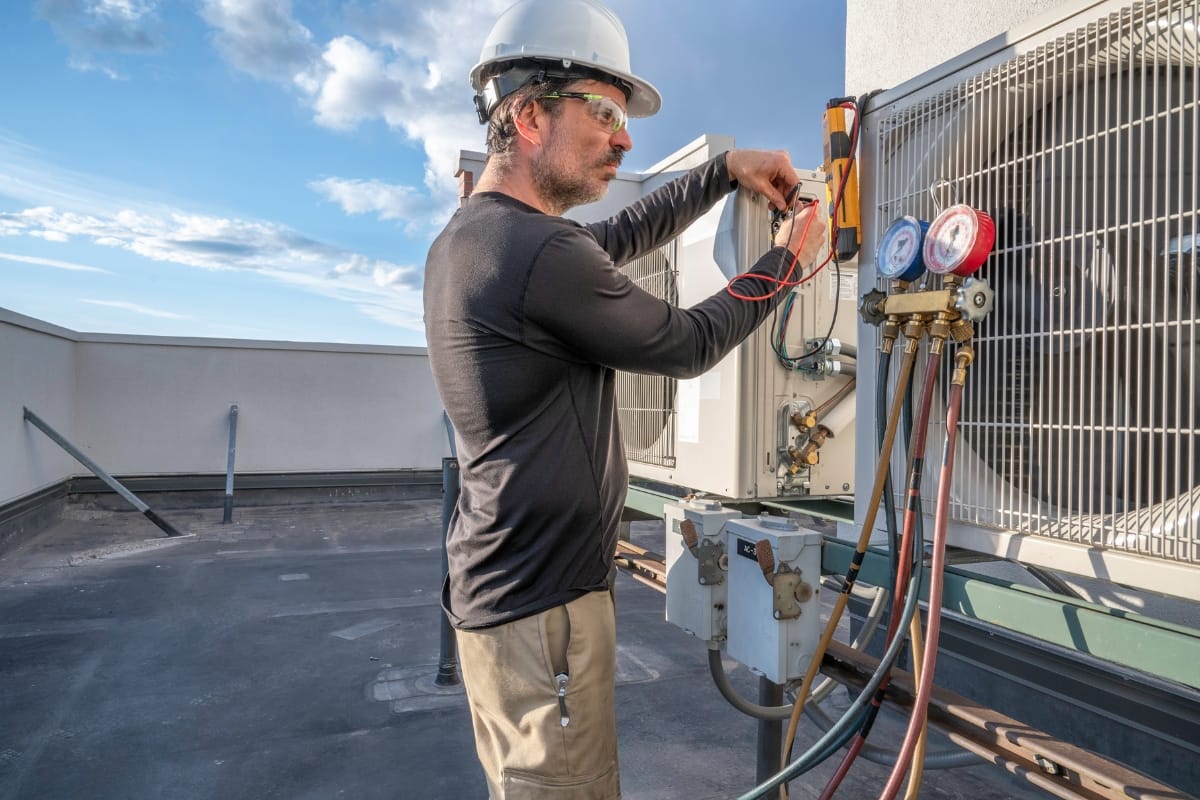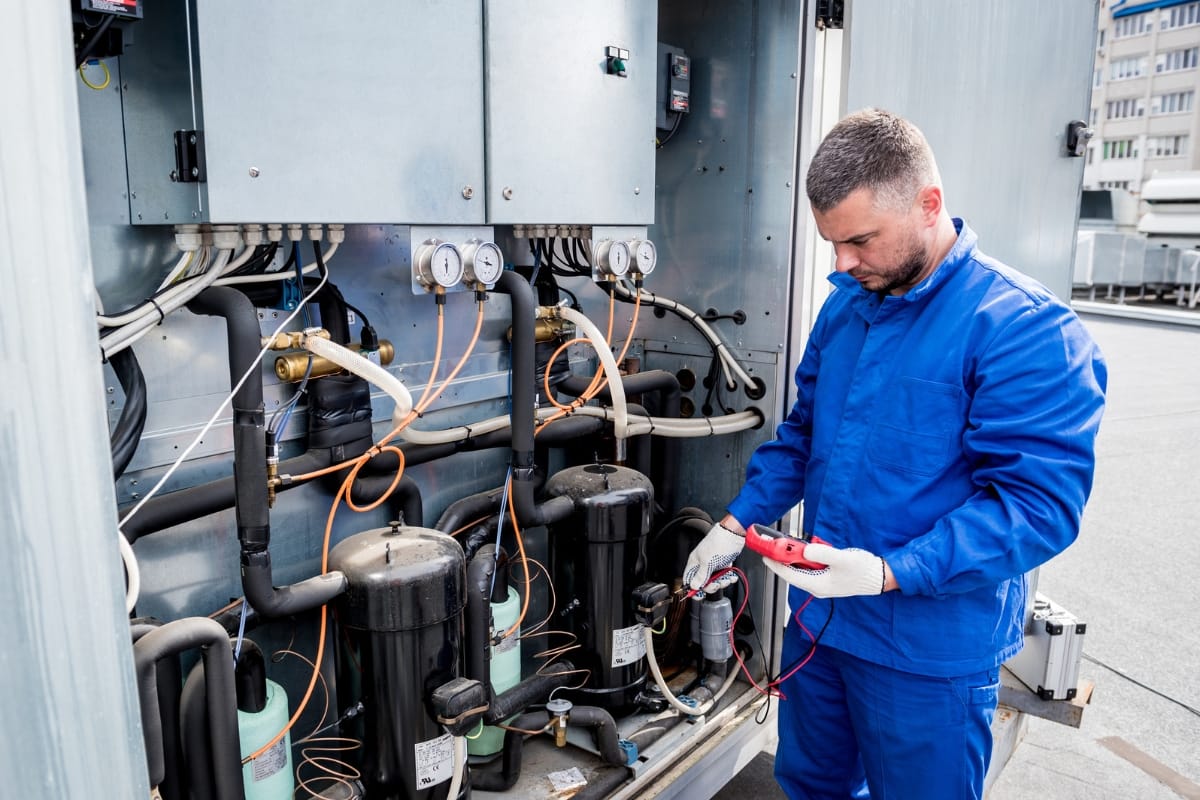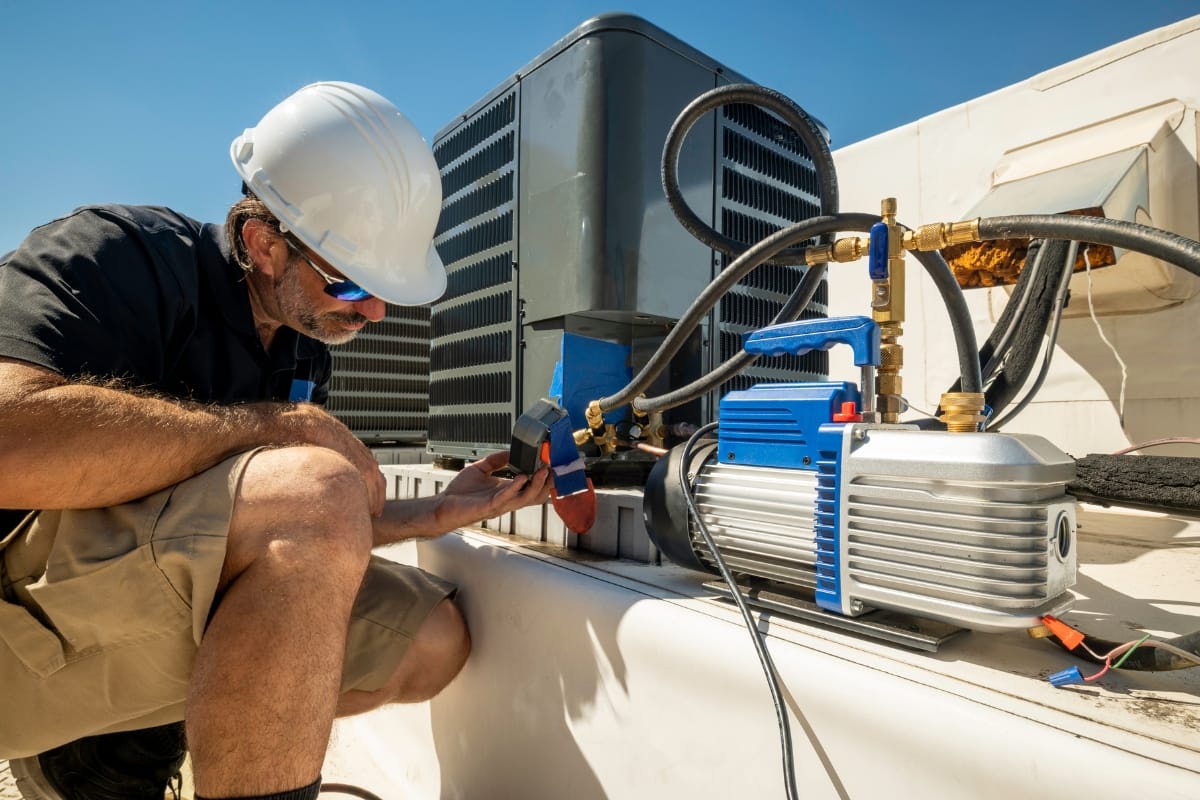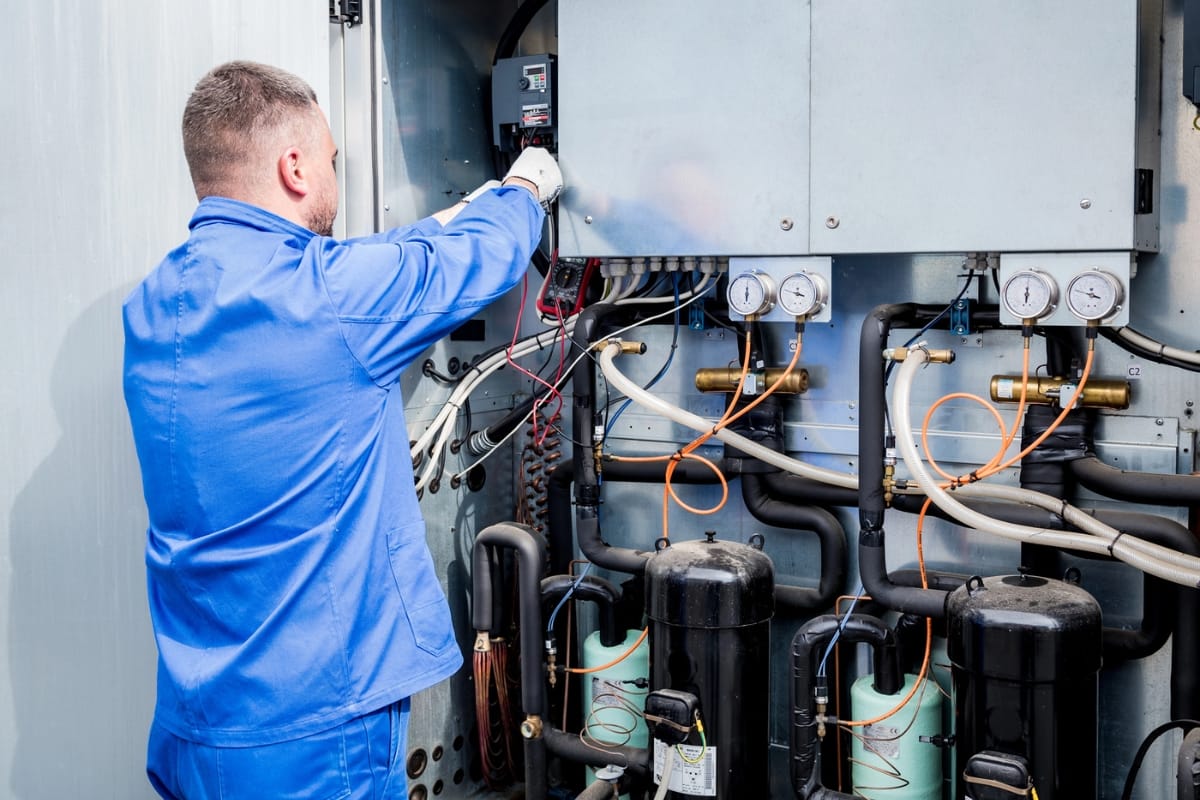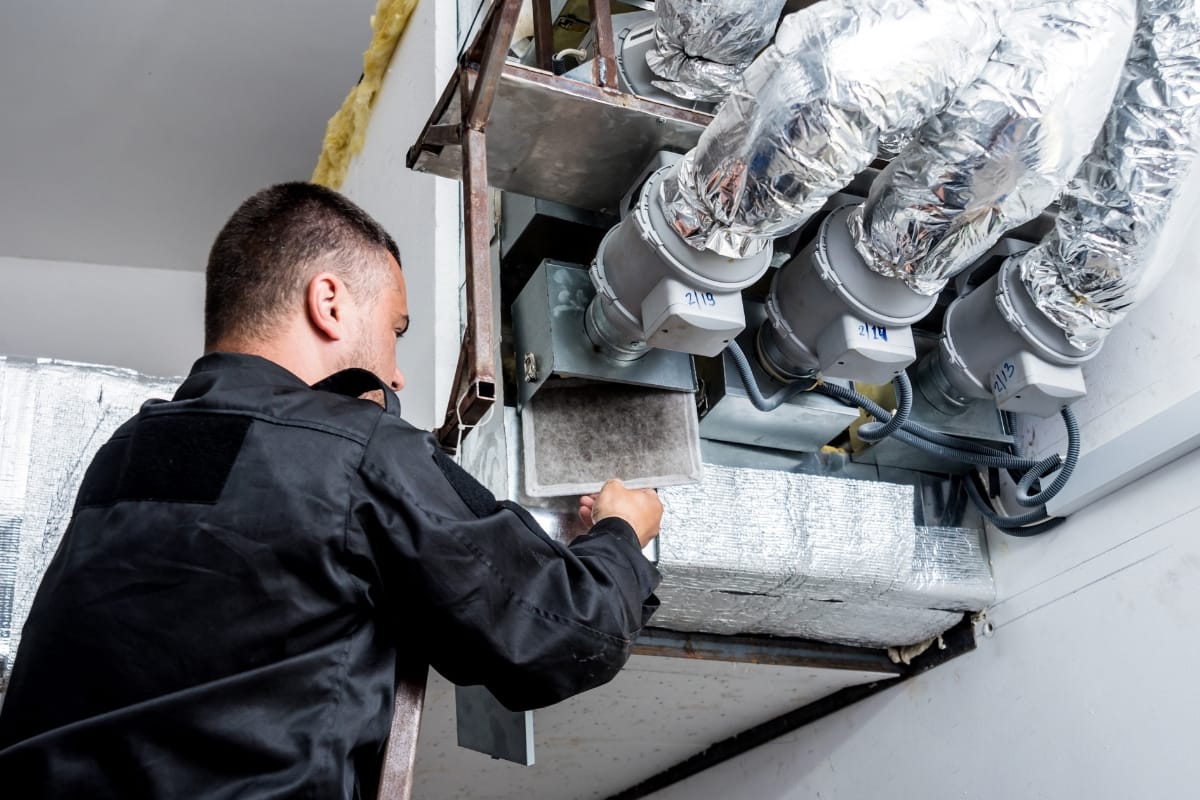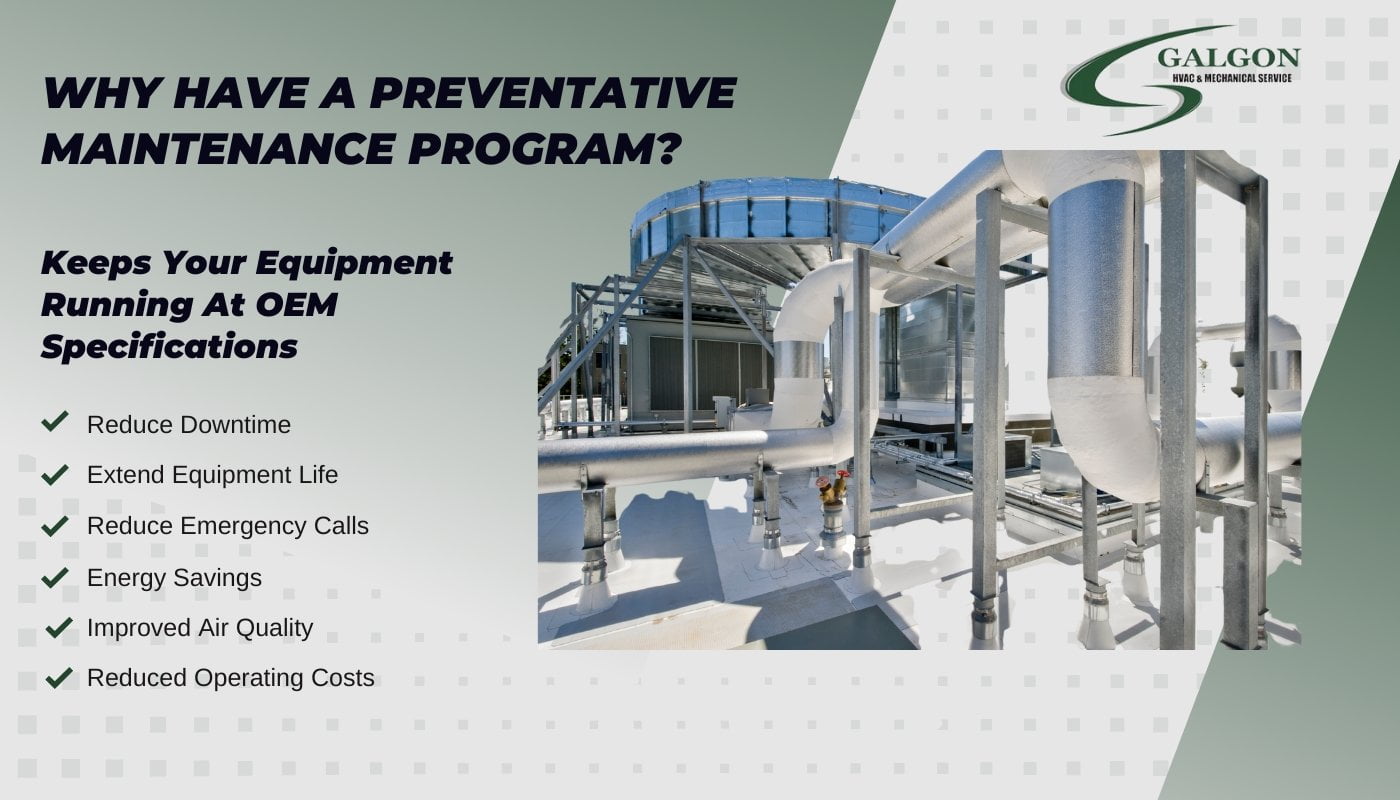Navigating the complex landscape of HVAC regulations is a critical aspect of operating a commercial facility. From ensuring indoor air quality to meeting energy efficiency standards, compliance with HVAC regulations is essential for maintaining a safe, comfortable, and sustainable environment for building occupants.
In this guide, we’ll explore the intricate web of HVAC regulations that govern commercial settings, providing facility managers, building owners, and HVAC professionals with valuable insights and practical strategies to ensure compliance.
From understanding building codes and environmental regulations to implementing best practices for HVAC system maintenance and operation, this guide will equip stakeholders with the knowledge and tools needed to navigate the regulatory landscape effectively.
Whether you’re overseeing a commercial property or involved in HVAC system design and installation, get ready to embark on a journey of compliance as we unravel the complexities of HVAC regulations in commercial settings.
Navigating HVAC Regulations: What You Need to Know to Stay in Compliance!
Understanding the Importance of HVAC Regulations in Commercial Real Estate
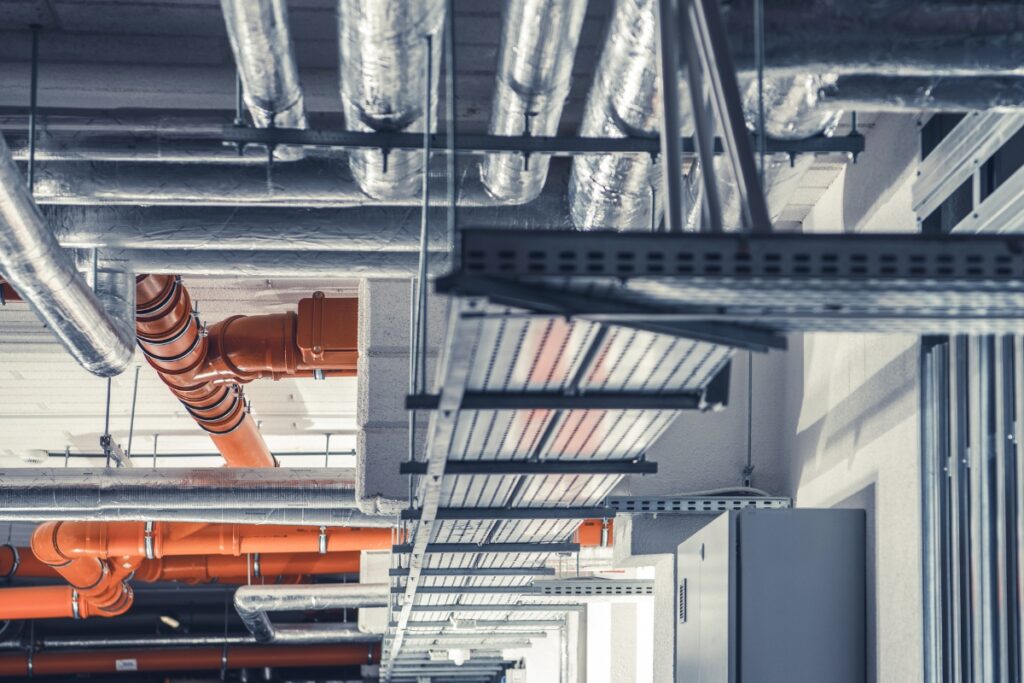
When it comes to commercial real estate, understanding HVAC regulations is crucial for ensuring compliance and maintaining a safe and comfortable environment for occupants. HVAC regulations govern the installation, maintenance, and operation of heating, ventilation, and air conditioning systems in commercial buildings. These regulations are designed to promote energy efficiency, indoor air quality, and overall safety.
Compliance with HVAC regulations is not just a legal requirement but also a strategic investment for commercial property owners and managers. By adhering to these regulations, businesses can reduce energy costs, minimize environmental impact, and avoid potential fines or legal issues. Moreover, maintaining HVAC systems in line with regulations can extend their lifespan and performance, ultimately saving money in the long run.
One key aspect of HVAC regulations in commercial real estate is regular maintenance and inspections. Property owners must ensure that their HVAC systems are serviced by qualified professionals to meet safety and efficiency standards. Proper maintenance not only enhances system performance but also helps prevent unexpected breakdowns that can disrupt business operations.
Another important consideration is the installation of energy-efficient HVAC systems. Many regulations now require commercial buildings to meet certain energy efficiency standards to reduce carbon footprint and operational costs. Investing in energy-efficient HVAC systems not only aligns with regulations but also positions businesses as environmentally conscious and socially responsible entities.
In addition to energy efficiency, indoor air quality is a significant focus of HVAC regulations in commercial settings. Proper ventilation, filtration, and humidity control are essential for maintaining a healthy indoor environment for building occupants. Compliance with indoor air quality standards not only promotes employee productivity and well-being but also mitigates the risk of health issues related to poor air quality.
Evolution of HVAC Regulations: From Basic Standards to Advanced Requirements
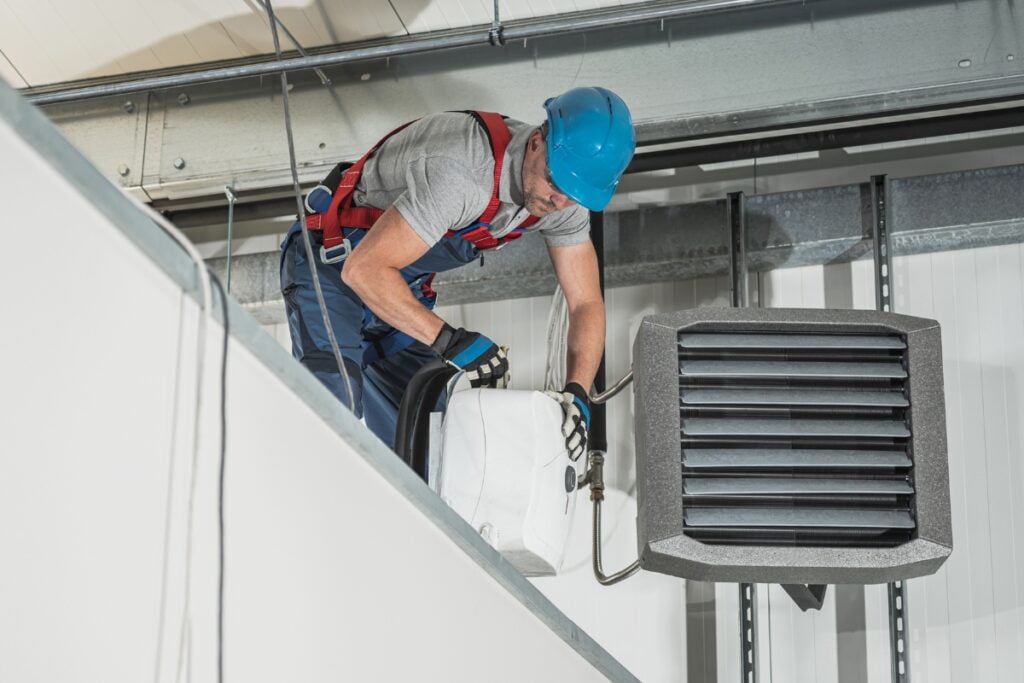
The evolution of HVAC regulations has been a significant journey from basic standards to advanced requirements. Initially, HVAC regulations focused on ensuring safety and minimal environmental impact. However, with the growing emphasis on sustainability and energy efficiency, the requirements have become more stringent over time.
In commercial settings, navigating HVAC regulations is crucial to ensure compliance with the law and contribute to a more sustainable future. Understanding the basic standards is the first step towards meeting compliance requirements. These standards often include guidelines on equipment efficiency, refrigerant usage, and indoor air quality.
As technology advances, so do the HVAC regulations. Advanced requirements now encompass smart building technologies, energy management systems, and data-driven approaches to optimize HVAC performance. Compliance with these regulations not only reduces environmental impact but also leads to cost savings for commercial property owners.
Staying abreast of the latest HVAC regulations is essential for businesses to avoid penalties and fines. Regular inspections and maintenance help ensure that HVAC systems meet the required standards. Additionally, investing in training for staff on energy-efficient practices can aid in compliance with advanced requirements.
Key Energy Efficiency Requirements for HVAC Systems in Commercial Settings
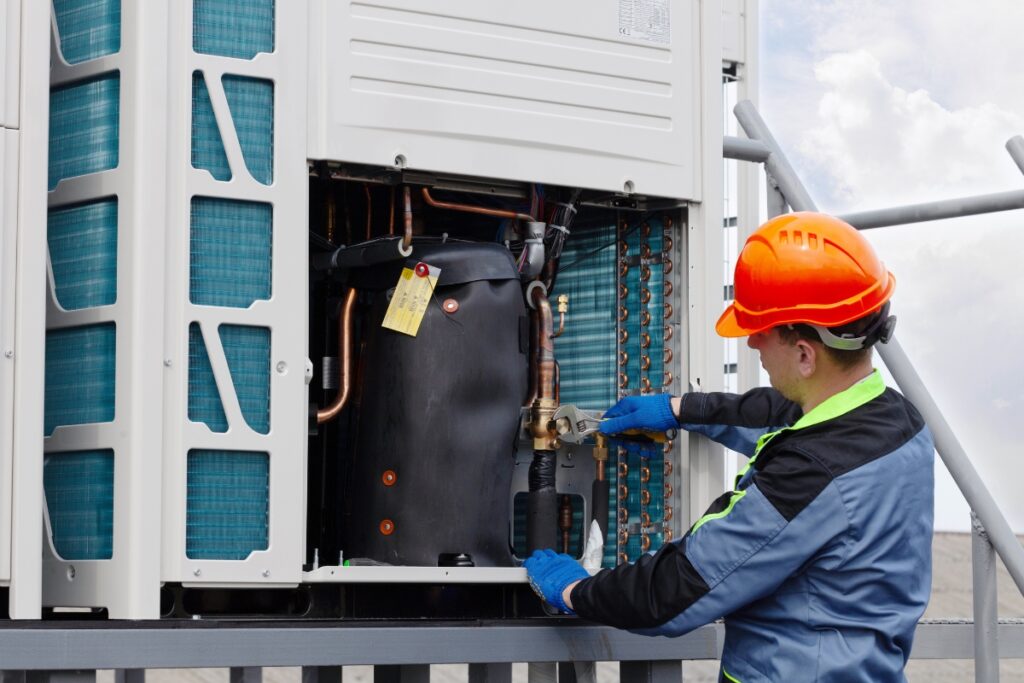
HVAC regulations encompass a set of guidelines that commercial establishments must follow to meet energy efficiency requirements. These regulations are designed to minimize energy consumption, reduce greenhouse gas emissions, and promote the use of eco-friendly HVAC technologies.
- Equipment Efficiency Standards: HVAC systems must meet specific efficiency standards set by regulatory bodies. This includes requirements for Season Energy Efficiency Ratio (SEER) and Energy Efficiency Ratio (EER) for air conditioners, and Annual Fuel Utilization Efficiency (AFUE) for furnaces.
- Regular Maintenance: Regular maintenance of HVAC systems is essential to ensure optimal performance and energy efficiency. This includes cleaning or replacing filters, checking refrigerant levels, and inspecting ductwork for leaks.
- Building Automation Systems: Implementing building automation systems can help regulate HVAC usage based on occupancy patterns, resulting in significant energy savings.
- Energy Management Strategies: Developing and implementing energy management strategies, such as setting temperature setbacks during non-operational hours, can contribute to reducing energy consumption.
- Compliance Documentation: Maintaining thorough documentation of HVAC system inspections, repairs, and upgrades is crucial for demonstrating compliance with energy efficiency regulations.
Navigating Compliance Challenges Navigating HVAC regulations in commercial settings can pose challenges due to the complexity of requirements and the need for ongoing monitoring and adjustments.
However, by partnering with experienced HVAC professionals and staying informed about evolving regulations, businesses can effectively navigate compliance hurdles.
Navigating Emission Controls: Compliance Strategies for Commercial HVAC Systems

When it comes to commercial HVAC systems, staying compliant with emission controls is crucial to meet HVAC regulations. It is essential for businesses to navigate through these regulations effectively. Implementing compliance strategies can help businesses avoid penalties and operate within legal boundaries.
Understanding HVAC regulations is the first step in ensuring compliance with emission controls. Regulations governing commercial HVAC systems are designed to reduce environmental impact and promote energy efficiency. Being aware of these regulations is key to developing a compliance strategy that meets the required standards.
Regular maintenance of commercial HVAC systems is vital for emission control compliance. Proper servicing and monitoring of equipment can help identify and address issues that may lead to emissions exceeding permissible levels. By staying proactive in maintenance, businesses can minimize the risk of non-compliance.
Investing in energy-efficient HVAC technologies plays a significant role in compliance strategies for commercial settings. Upgrading to systems that meet or exceed regulatory standards not only ensures compliance but also helps reduce energy consumption and operating costs. Energy-efficient systems contribute to sustainability goals while keeping emissions in check.
Collaborating with qualified HVAC professionals is essential for navigating emission controls in commercial settings. HVAC experts have the knowledge and experience to assess systems, recommend compliance measures, and ensure that equipment meets regulatory requirements. Partnering with professionals can streamline the compliance process and provide peace of mind.
The Impact of HVAC Compliance on Building Management Standards
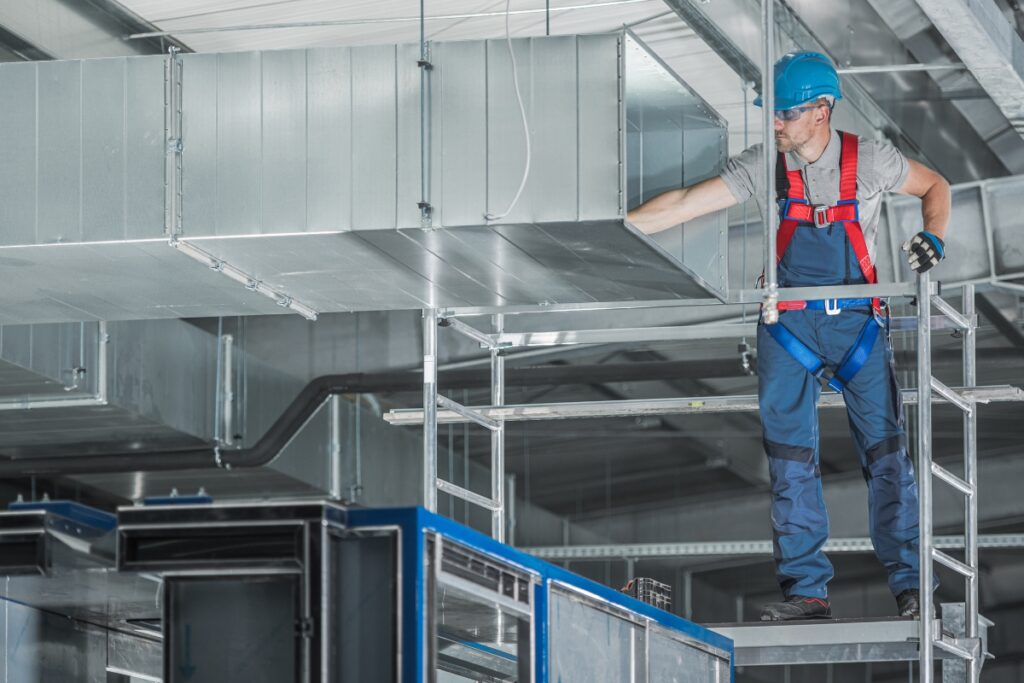
HVAC compliance has a direct impact on building management standards. By meeting all the necessary regulations, you demonstrate your commitment to providing a safe, comfortable, and sustainable environment for building occupants. This not only enhances the reputation of your commercial property but also attracts and retains high-quality tenants.
Non-compliance with HVAC regulations can lead to various consequences, including fines, legal liabilities, and reputational damage. It can also result in inefficient system performance, increased energy consumption, and poor indoor air quality.
By prioritizing HVAC compliance, you can avoid these pitfalls and ensure that your building management standards are at the forefront of industry best practices.
Common Challenges Faced in Ensuring HVAC Regulations Compliance
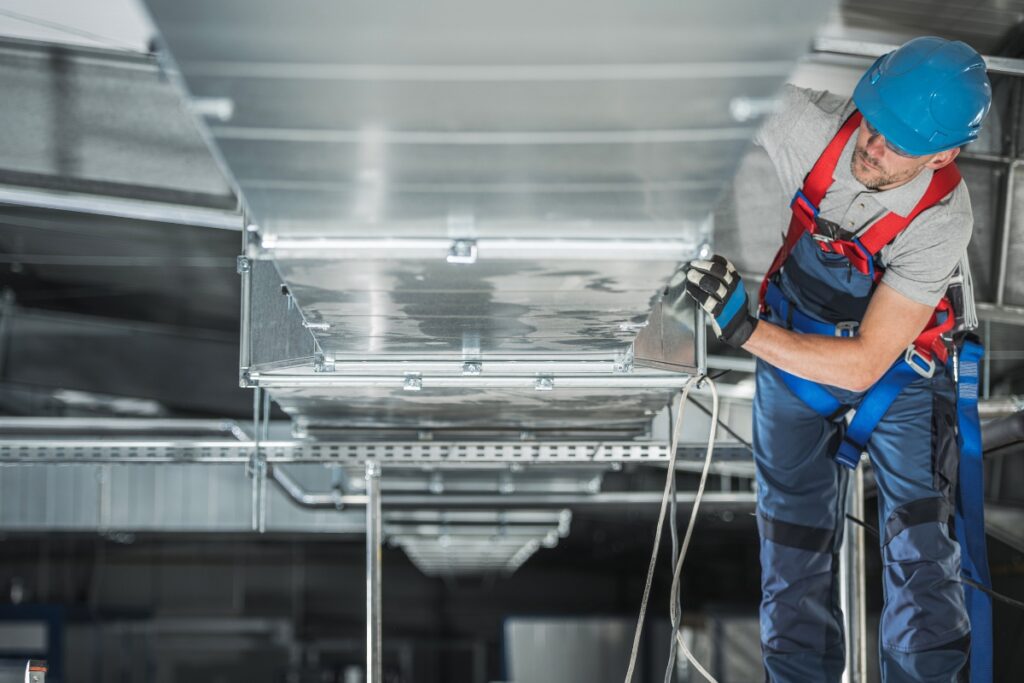
One of the primary challenges faced in ensuring HVAC regulations compliance is the frequent updates and changes in the regulatory landscape. HVAC regulations are subject to revisions based on environmental concerns, technological advancements, and government policies. Staying abreast of these changes and effectively implementing them in commercial HVAC systems can be a complex and time-consuming process.
Another key challenge is the diverse nature of HVAC regulations that vary across different regions and jurisdictions. Compliance requirements may differ not only between countries but also between states or municipalities. This requires businesses operating in multiple locations to have a comprehensive understanding of local regulations and tailor their compliance efforts accordingly.
Ensuring proper documentation and record-keeping is also a significant challenge in HVAC regulations compliance. Maintaining accurate records of HVAC system installations, inspections, repairs, and maintenance activities is essential for demonstrating compliance during audits or inspections. Failure to keep thorough and up-to-date records can result in non-compliance issues.
Furthermore, budget constraints pose a challenge for organizations striving to meet HVAC regulations compliance. Upgrading existing HVAC systems to meet regulatory standards can be a costly endeavor, especially for small businesses or those with limited financial resources. Balancing compliance requirements with budgetary constraints requires careful planning and prioritization of compliance measures.
In addition, the complexity of HVAC systems and their interconnected components can make compliance challenging. Ensuring that all components of the HVAC system, such as ventilation, refrigeration, and air quality control, meet regulatory standards requires specialized knowledge and expertise. Organizations may face difficulties in identifying potential compliance gaps and addressing them effectively.
Best Practices for Maintaining HVAC Systems to Meet Regulatory Standards
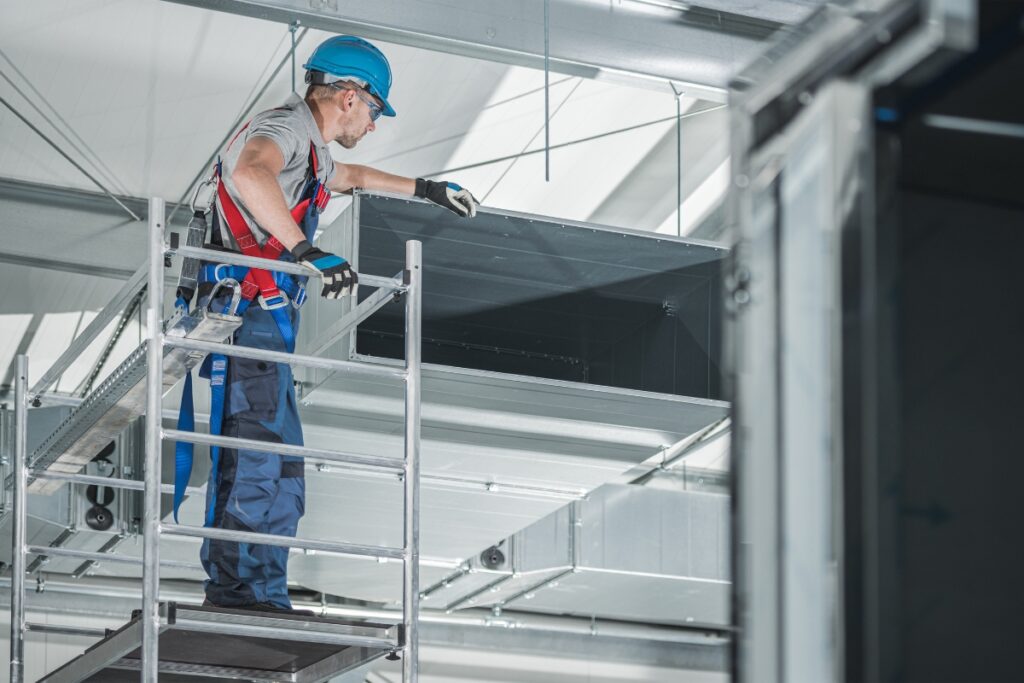
To ensure that HVAC systems in commercial settings meet regulatory standards, it is essential to implement best practices for maintenance.
By adhering to HVAC regulations, businesses can not only operate efficiently but also avoid costly penalties. Let’s delve into some key practices for maintaining HVAC systems to comply with regulatory standards.
- Regular Inspections and Maintenance: HVAC regulations emphasize the importance of regular inspections and maintenance. Conducting routine checks on equipment, filters, ducts, and refrigerant levels can help identify issues early on and prevent potential violations.
- Compliance Documentation: Keeping detailed records of maintenance activities, repairs, and inspections is crucial for demonstrating compliance with HVAC regulations. Proper documentation also serves as a valuable resource during audits or inspections by regulatory authorities.
- Training and Certification: Ensure that HVAC technicians and maintenance staff are adequately trained and certified to handle system maintenance according to regulatory standards. Ongoing training programs can keep employees up-to-date with the latest regulations and best practices.
- Energy Efficiency Measures: Implementing energy-efficient practices not only helps reduce operational costs but also aligns with environmental regulations. Regularly assess HVAC system performance and consider upgrades or retrofits to improve energy efficiency and meet regulatory requirements.
- Indoor Air Quality Management: Maintaining indoor air quality is a key aspect of HVAC regulations. Implement measures such as regular cleaning of ducts, proper ventilation, and use of air purifiers to ensure a healthy indoor environment and compliance with regulatory standards.
- Emergency Preparedness: Developing and implementing an emergency response plan for HVAC system failures or safety incidents is essential for meeting regulatory standards. Conduct regular drills and ensure that staff are trained to respond effectively to emergencies.
By incorporating these best practices into HVAC system maintenance, businesses can navigate compliance with regulatory standards effectively. Prioritizing regular inspections, compliance documentation, training, energy efficiency, indoor air quality, and emergency preparedness is key to ensuring that HVAC systems meet regulatory requirements in commercial settings.
Leveraging Compliance for Enhanced System Performance and Tenant Satisfaction
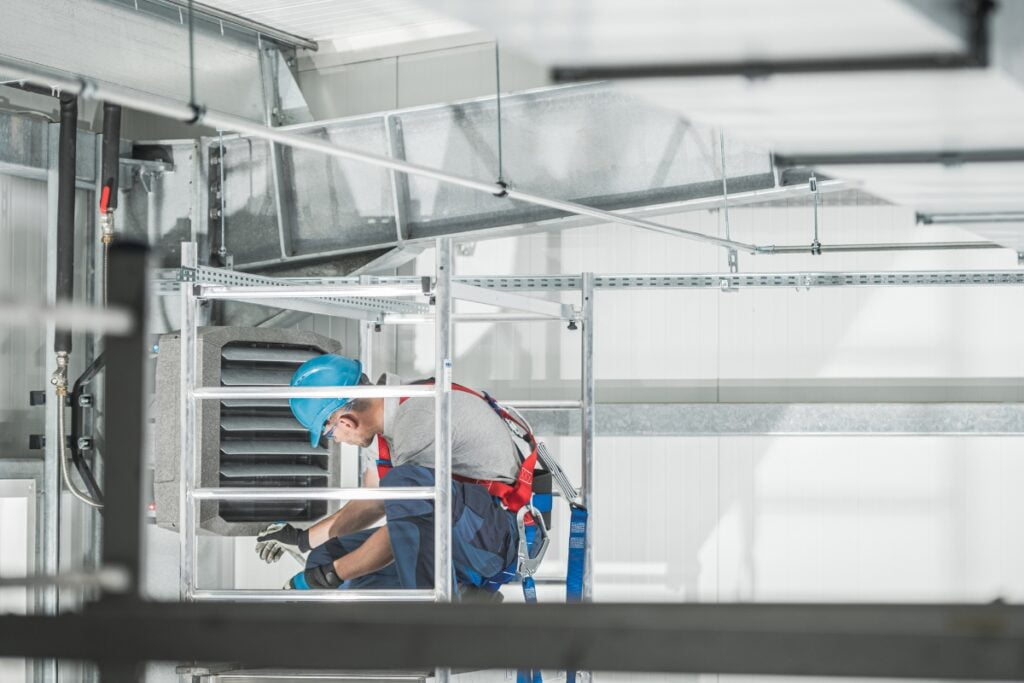
HVAC compliance is not just about meeting legal requirements; it can also be leveraged to enhance system performance and tenant satisfaction. By going above and beyond the minimum regulations, you can differentiate your commercial property from competitors and attract tenants who prioritize comfort, sustainability, and energy efficiency.
Investing in advanced HVAC technologies, such as smart controls or energy monitoring systems, can provide valuable insights into system performance. These technologies allow you to identify areas for improvement, optimize energy usage, and proactively address any issues before they impact tenant comfort. By leveraging compliance as a strategic asset, you can create a positive tenant experience while reducing operational costs.
Future Trends in HVAC Regulations: What Commercial Property Owners Need to Know
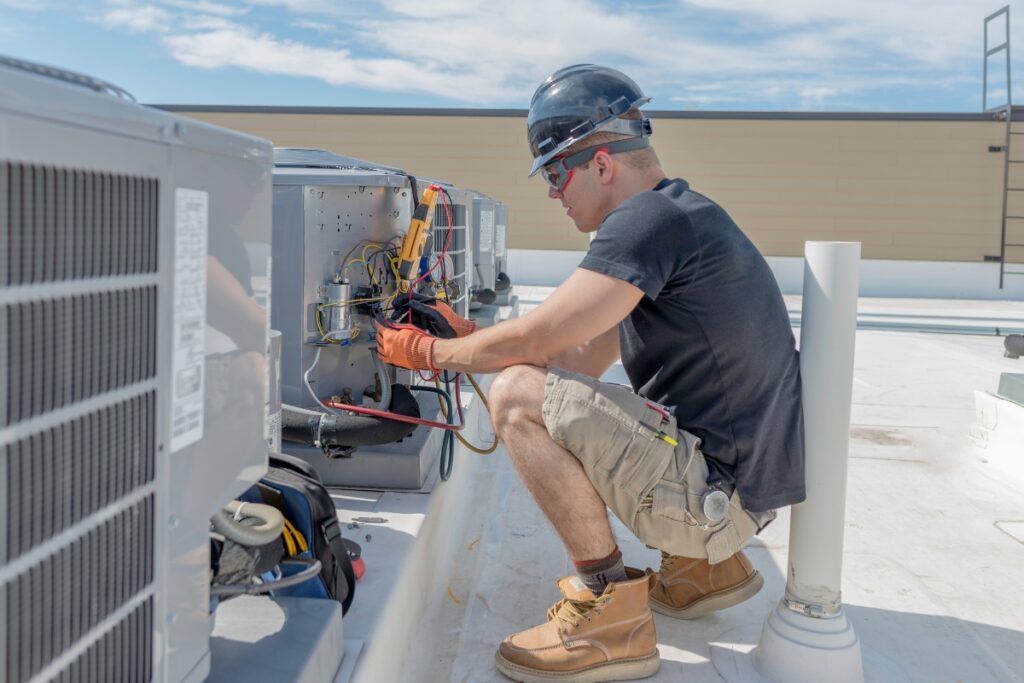
In the ever-evolving landscape of HVAC regulations, commercial property owners must stay informed to ensure compliance with the latest standards. Understanding the future trends in HVAC regulations is crucial for maintaining efficient and sustainable heating, ventilation, and air conditioning systems within commercial settings.
As HVAC regulations continue to evolve, commercial property owners need to be aware of key changes that may impact their buildings. From energy efficiency requirements to refrigerant regulations, staying ahead of the curve is essential to avoid costly penalties and ensure the comfort and safety of building occupants.
One of the emerging trends in HVAC regulations is the focus on environmental sustainability. With an increasing awareness of climate change and its impact on the environment, regulatory bodies are placing greater emphasis on reducing carbon footprints and promoting energy-efficient practices in commercial buildings.
Another important trend to watch for is the shift towards smart HVAC systems. As technology continues to advance, regulators are encouraging the adoption of smart thermostats, sensors, and other IoT devices to improve energy management and optimize HVAC performance in commercial properties.
Moreover, the phasing out of certain refrigerants deemed harmful to the ozone layer is a significant development in HVAC regulations. Commercial property owners must be prepared to transition to alternative refrigerants that comply with the latest environmental standards to avoid disruptions to their HVAC systems.
Conclusion: Turning HVAC Regulations into Strategic Assets for Commercial Properties
Navigating HVAC regulations requires knowledge, planning, and proactive maintenance. By following best practices and staying informed about evolving trends, you can turn these regulations into strategic assets that benefit both your commercial property and its occupants. Embrace HVAC compliance as a pathway to operational excellence and environmental stewardship.
As you delve into the complexities of HVAC regulations in commercial settings, having a trusted HVAC partner is crucial. At Galgon HVAC & Mechanical Service, we specialize in navigating compliance and ensuring that your commercial HVAC systems meet all necessary regulations. Contact us today at (404) 352-1500 or visit our website to request a service or a quote. With our expertise and dedication to compliance, you can trust Galgon HVAC & Mechanical Service to keep your commercial spaces running smoothly and in accordance with regulations.
